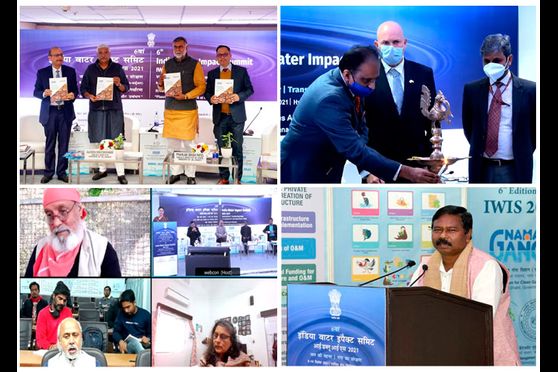Water Impact Summit at IIT Kanpur to help explore measures for Ganga restoration


Indian Institute of Technology (IIT) Kanpur hosted the sixth edition of India Water Impact Summit from December 9 to 14 to brainstorm over the various measures that could help achieve the Samarth Ganga (Able Ganga) objective of the Centre.
The summit was held in collaboration with National Mission for Clean Ganga (NMCG) and Centre for Ganga River Basin Management and Studies (cGanga).
Owing to COVID-19 restrictions, the event was held in hybrid mode at the NMCG office and IIT Kanpur. The inaugural session, held in New Delhi earlier on December 9, had been attended by Jal Shakti minister Gajendra Singh Shekhawat and minister of state for food processing industries Pralhad Singh Patel among others.
“Water supply, conservation of water resources, and curbing water pollution are challenges for the whole world. Global conferences like IWIS are, therefore, very important,” said Shekhawat, while addressing the inaugural ceremony of the summit.
The theme for this edition of the summit was Allocation of River Resources – Planning and Management at the Regional Level.
Several sessions were held during the six-day summit with focus on Science, Technology and Policy, Finance and Economics, Policy, Law and Governance and International Cooperation. Discussions were held on several key areas such as river resource accounting, sustainable agriculture, water recycling, wastewater management, marine pollution, water economy and so on.
IIT Kanpur director Abhay Karandikar said, “River Ganga holds major cultural as well as ecological significance to us. The onus is on every stakeholder to safeguard and conserve it for a healthy holistic future. IIT Kanpur has been undertaking rigorous and relentless initiatives to ensure good health of the Ganga.”
Minister of state for Jal Shakti Bishweswar Tudu – who was the chief guest at the valedictory session held on December 14 – appreciated the work of NMCG and cGanga, saying that the conservation of River Mahanadi in Odisha had started after the great progress on Ganga. He threw light on the significance of implementing the outcomes of the discussions and focused primarily on practical approaches.
Several MoUs were signed between Indian and foreign agencies to strengthen the campaign of saving the Ganges and ensuring its sustainability in the long run.
An MoU was signed between cGanga and Norwegian Institute of Bioeconomy Research (NIBIO) for the development of a sludge management framework during the summit. An MoU between cGanga and British Water was inked to promote the development of modern infrastructure in water and the environment sector.
Besides, two separate MoUs were signed with Innovation Centre Denmark and UPS Hungary to share knowledge and increase participation of Hungarian industry in the Ganga River Basin Restoration and Conservation Programme.